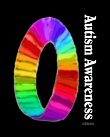Yesterday was the much anticipated Dr. Phil show with Dr. Bob Sears on it. I really wish Dr. Sears had been able to speak a bit more on the topic of co-sleeping, but I really appreciated some of Dr. Phil’s commentary. That Kranner guy, the seriously anti co-sleeping ‘expert’, came off as an angry little man. He was so hostile towards children I can not imagine people actually agreeing with him, unless they share his view of children as manipulators. I was shocked and pleased when Dr. Phil pointed out that co-sleeping has been the norm for hundreds of years, and is still the norm in non-Western culture. It has only been a fairly recent invention in Western Society. Kranners arguement was that you have to look at the communities value system…here we value independence and autonomy. I don’t quite understand how that is a totally good thing. Why is it wrong to value community and family as much as the individual?
The message boards at Dr. Phil are rather interesting too. People just have this persistent incorrect assumption that Attachement Parenting is the same thing as Permissive Parenting, and it is so untrue. I wish Dr. Phil would do a show that explained AP as a concept, because people really have the wrong idea. AP is about following you child’s cues so you can enable them to make honest developmental leaps when they are ready instead of when it convinenet for the parent. For instance, it would be really convient and make my life easier if Zane was potty learned. It would be cheaper and, in theory, less laundry. (I say ‘in theory’ because at this point, that wouldn’t be true…I would just be washing clothes and sheets instead of diapers). He is just not ready yet, even though I WANT him to be ready.
People have this idea that if you take your baby to bed they will never leave. Why would they think that? I already notice ds is starting to desire to get to sleep on his own in his own room every once in a while, and I follow that cue. He isn’t ready yet to do that full-time, but there is a subtle, gradual increase of it and I never force him one direction or the other (take him to be when he isn’t interested, or vise versa). Granted, kids are different, but I imagine that all kids, given a stable and nurturing environment, are going to naturally make that transition. How many 16 yo have any interest in sleeping with mom & dad every night…it just doesn’t happen (unless there is another issue of which co-sleeping is a symptom).
And people also have entirely the wrong idea of anti-Cry It Out. Cry-It-Out refers specifically to a method of getting a child to sleep, not to daytime interactions. A CIO family beleives that a young child should just ‘deal with it’ and plop them in a crib and leave them. A child in that family ‘learns to sleep’ by crying until they are so exhausted they pass out. I honestly don’t remember Zane ever crying at bedtime as an infant. (there are some short tears of protest as he has gotten older when I say ‘time for bed’, but they usually only last while he grumpily walks from his room to our room, if that even) Bedtime was not really any different than any other time…he nursed, but he was tired so he fell asleep. When he was really little, we would then lay him on a pallet we made up on the floor a few feet from us so that if he woke up, we were right there. When he had consistently stayed asleep for several hours, we began to lay him down in the bed when he fell asleep, and then, after a while, we began to have an actual bedtime routine where he falls asleep in the bed. He is now at the very begininning of wanting to fall asleep in his own bed every once in a while, but I suspect it will be a gradual transition, just like everything else. (I remember the time somebody asked me when he night weaned, and I laughed because I had no idea….I could point to a vent several months earlier where I vented at the frustration of him always needing to nurse at night, but the change happened so gradually that I missed exactly when the final step occured)
anti Cry – It – Out does not mean I never want to hear my children cry. I still see crying as primarly a form of communication, and a release of emotions, and don’t see it as him trying to manipulate me. When he cries because he has not gotten something he wants (basically, a tantrum), instead of dismissing him, I realize that for my ds, a large part of it is because he doesn’t have the words to express how he is feeling, so I help him find some words if I am pretty sure I know what is going on. (i.e. : It sounds like you are really mad because you can’t go outside right now…it is hard to wait, isn’t it…it makes you feel really mad inside when you can’t have something you want..ect.) By giving him the words to express himself, he calms down a lot sooner because he knows he has been heard and knows his feelings matter. It dosn’t mean he is going to get his way, it just means it is ok to be upset about it and we need to learn how to handle dissapointment and anger in appropriate ways. It does NOT mean that we will give them their way to avoid tears…far from it. There are, of course, overly permissive parents in AP, just like there are overly dictorial parents in Babywise, but those parents represent the extreme ends of both styles, and both are harmful to children, IMO.
And the times when he is crying because he is hurt, emotionally or physically, I comfort him, the same way I comfort my spouse, my friends, or my parents when they are upset and crying. Crying is the appropriate response to emotional overload at times. It isn’t something I can ‘fix’, but I can be there for them. I wouldn’t abandon them when they were upset, why would I do that to a child who has even less abilty to handle to onslaught of emotions? By responding to ds’s cries, I am teaching him not only that I am there for him, but how to be there for other people…developing empathy for people’s pain.
Somebody sent me this link describing a Harvard study in reguards to cry-it-out and other attachment parenting issues that I found interesting. Harvard University Gazzette






